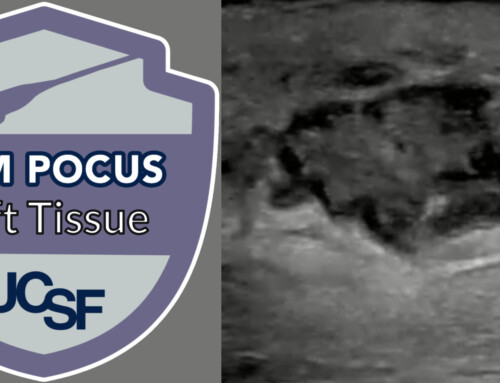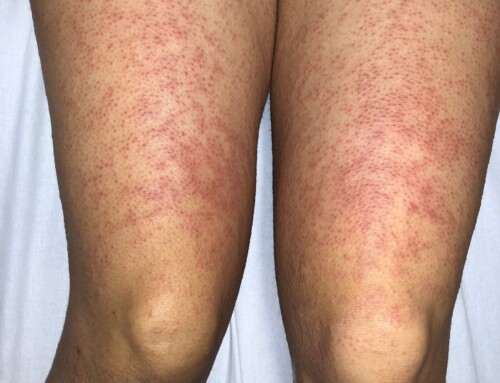Vitals: BP 95/68; HR 96; RR 24; 98% on room air; Temp 36.2°C; Wt 18.2 kg
General: Well-appearing 4-year-old female acting appropriately with grandmother and mother at the bedside.
Abdomen: Soft, nontender, nondistended.
Genitourinary: Normal appearing external genitalia without any skin tears/lacerations. Vaginal exam: Slow oozing bleed noted with round “doughnut” shaped tissue protruding at the vaginal opening.
Hemoglobin: 12.2 g/dL
Urinalysis (clean catch): Blood: Large; >200 RBCs, Ketones: 20, Nitrite: Negative, Leukocytes: Moderate, 19 WBCs
FSH/LH/Testosterone: Within normal limits
Urethral prolapse is a rare condition occurring in prepubertal female pediatric patients. It often presents to the emergency department with complaints of vaginal bleeding, difficulty urinating, or dysuria. The most common predisposing factors to this condition include obesity, cough, trauma, constipation, or a history of any activity that causes a sudden recurrent increase in pelvic pressure, such as a trip to the trampoline park as was the case in this patient [1]. On physical examination, urethral prolapse appears as an annular-like mucosal mass with a central dimple located between the labia majora on examination [1]. Initial treatment is medical management with topical estrogen cream in conjunction with Sitz baths and outpatient follow-up with pediatric urology or gynecology. However, persistence of the prolapse or necrosis of the distal urethra often warrants emergent pediatric urology consultation [2,3]. Recurrent cases or cases refractory to medical management will often require surgery. The patient in this case was treated with a 4-week estrogen cream taper. The patient followed up with pediatric gynecology without further complication or need for further intervention.
Child Abuse, Vaginal Trauma, Malignancies (ie: sarcoma botryoides), Infection, Vaginal foreign body, Urethral Prolapse, Precocious puberty, Hypothyroidism, and Exogenous hormone
Take-Home Points
- Consider urethral prolapse in any prepubertal female who presents to the Emergency Department with a triage complaint of vaginal bleeding.
- Treatment for urethral prolapse is typically conservative with topical estrogen cream and prompt follow up with pediatric urology or gynecology.
- Always keep a broad differential for prepubertal pediatric patients with genitourinary and vaginal bleeding complaints
- HHillyer S, Mooppan U, Kim H, Gulmi F. Diagnosis and treatment of urethral prolapse in children: experience with 34 cases. Urology. 2009 May;73(5):1008-11. doi: 10.1016/j.urology.2008.10.063. Epub 2009 Mar 13. PMID: 19285715.
- Laufer M, Emans S. Overview of vulvovaginal conditions in the prepubertal child. Uptodate.com. https://www.uptodate.com/contents/overview-of-vulvovaginal-conditions-in-the-prepubertal-child. Published 2021. Accessed January 5, 2022.
- Teach S. Evaluation of vulvovaginal bleeding in children and adolescents. Uptodate.com. https://www.uptodate.com/contents/evaluation-of-vulvovaginal-bleeding-in-children-and-adolescents#H11716993. Published 2021. Accessed January 5, 2022.






